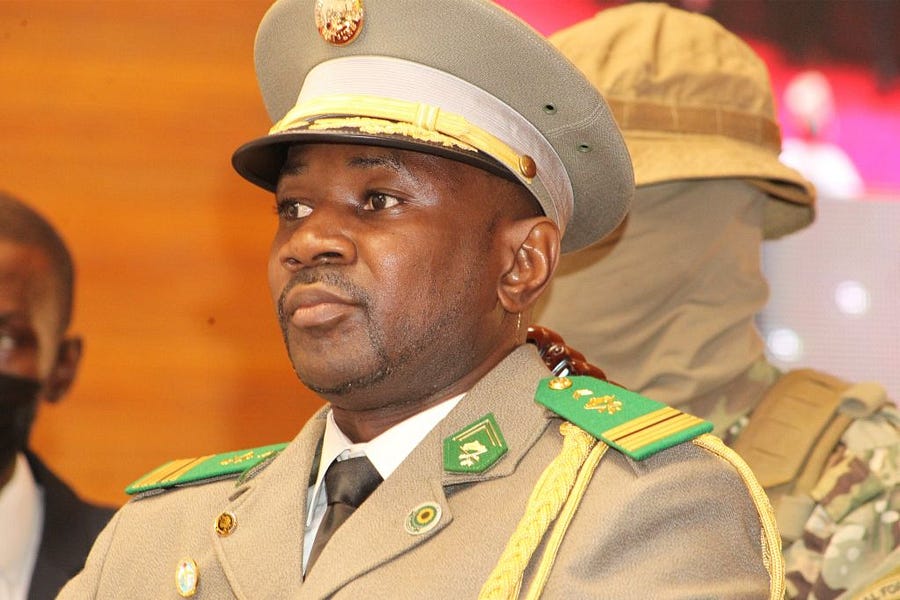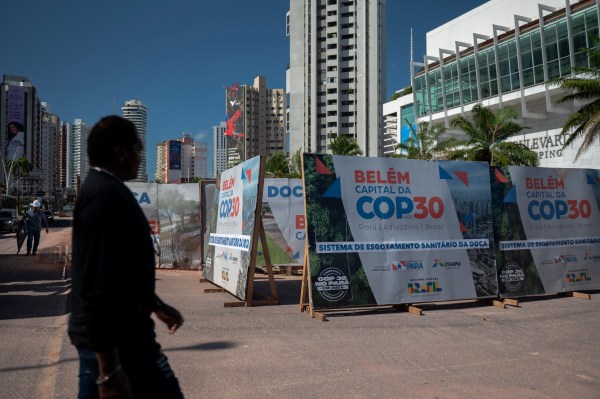Earlier this month, French President Emmanuel Macron announced the end of France’s Operation Barkhane in the Sahel region of Africa. The announcement, which came ahead of the G7 Summit, received little attention among the other G7 related headlines or on this side of the Atlantic. Yet France is not alone in the Sahel, where it has been conducting the anti-terror mission since 2014, and the U.S. has offered support to the operation. Now is not the time to abandon the fight against terrorism in Mali or the wider Sahel.
This is an issue in which there is growing consensus with America’s closest allies. The recent NATO summit communique included notes that “The deteriorating situation in the Sahel region matters to NATO’s collective security.” Perhaps France is hoping that NATO, increasingly free of its commitments in Afghanistan, can pick-up the baton.
The Sahel has for good reason earned the nickname of “coup belt.” In late April, Chadian Gen. Azem Bermendao Agouna took over the country after announcing that President Idriss Déby had died. Though the report remains unconfirmed, the long-time president may have been killed leading his troops in battle against rebels. In a military sense such turns would have been unremarkable, as Déby rose to national prominence in part for his role as a military leader during Chad’s conflict with Libya in the 1980s. But in terms of political history it would mark a rare example of a head of state dying while leading his troops in battle.
And last month, Mali had its second coup in as many years, which some observers have pegged as the reason for the French announcement. In Mali, this new coup is much like the old one. In both instances, the figure in charge has been Col. Assimi Goita. Goita was the ringleader among the five colonels who appeared on television to announce the 2020 coup. Prior to the most recent coup he served as the vce president of the transitional government. The 2020 coup saw both President Ibrahim Keita and Prime Minister Boubou Cisse detained to be replaced with a transitional government. It was the prime minister and president of this transitional government who were toppled last month.
Goita’s defenders are quick to point out that Malian constitutional authorities in Bamako had previously ruled that the country is operating in an “extraconstitutional” period. Those are never nice words to hear in any political context, but the international community should stay focused on making sure Mali’s important elections happen next February and on the country’s fight against terrorism.
For his part, the 38-year old Goita has pledged repeatedly to respect the February election deadline. Mali, until quite recently, was one of the better democracies in the Sahel region, and indeed in Africa, despite its poverty. Poverty is in large part due to the environmental degradation the country has suffered for decades.
Droughts in Northern Mali, which represents two-thirds of the nation’s land area, have contributed to the growth of violent extremism. Droughts in the late 1980s degraded the livelihoods of many pastoralists. Many from the region ended up seeking work in various security forces organized by Libyan Muammar Qaddafi, such as his Islamic Pan-African Legion, and these trends continued for decades.
Then came the 2011 invasion of Libya by the U.S. and France to topple Qaddafi’s regime. This operation was conducted with much gusto but with little thought on the ramifications for nations of the Sahel. Yes, the war in Libya did remove an aging Qaddafi from power but it also resulted in more than a decade of instability in the Sahel. When the Malian civil war started in 2012, there was ready access to guns from Libya and those trained to use them. The longer the Sahel remains unstable, the more illegal migrants will continue to see the region as a highway to Europe. In the long-term, a continued commitment to a stable Sahel may be a far cheaper strategy for the security of NATO’s Southern Flank than a massive increase in illegal migration.
Furthermore, the departure of French and other Western powers from the scene will be viewed as a victory for jihadists. Indeed, with such groups largely on the run in Libya, Syria, and Iraq, increasingly even mainline ISIS propaganda has focused on Africa where terrorist groups are on the march. Some governments may understand this better than others which is why Estonia, one of Europe’s smallest countries in terms of population, has also gone out of its way to commit its soldiers to the conflict.
Indeed, the Malian ambassador to Washington, D.C., Mahamadou Nimaga, has emphasized that Mali needs the help of the international community to turn a new page in its history in the pursuit of the restoration of democracy. This will require assistance in holding the 2022 elections to ensure the integrity of the poll both in the populous southern half and the sparsely populated north of the bow-tie shaped country. As well as continued economic growth development to deal with the root causes of instability. Only this way will the region, which is known as the “coup belt” transform into a buckle for democracy and stability in Africa.





Please note that we at The Dispatch hold ourselves, our work, and our commenters to a higher standard than other places on the internet. We welcome comments that foster genuine debate or discussion—including comments critical of us or our work—but responses that include ad hominem attacks on fellow Dispatch members or are intended to stoke fear and anger may be moderated.
With your membership, you only have the ability to comment on The Morning Dispatch articles. Consider upgrading to join the conversation everywhere.